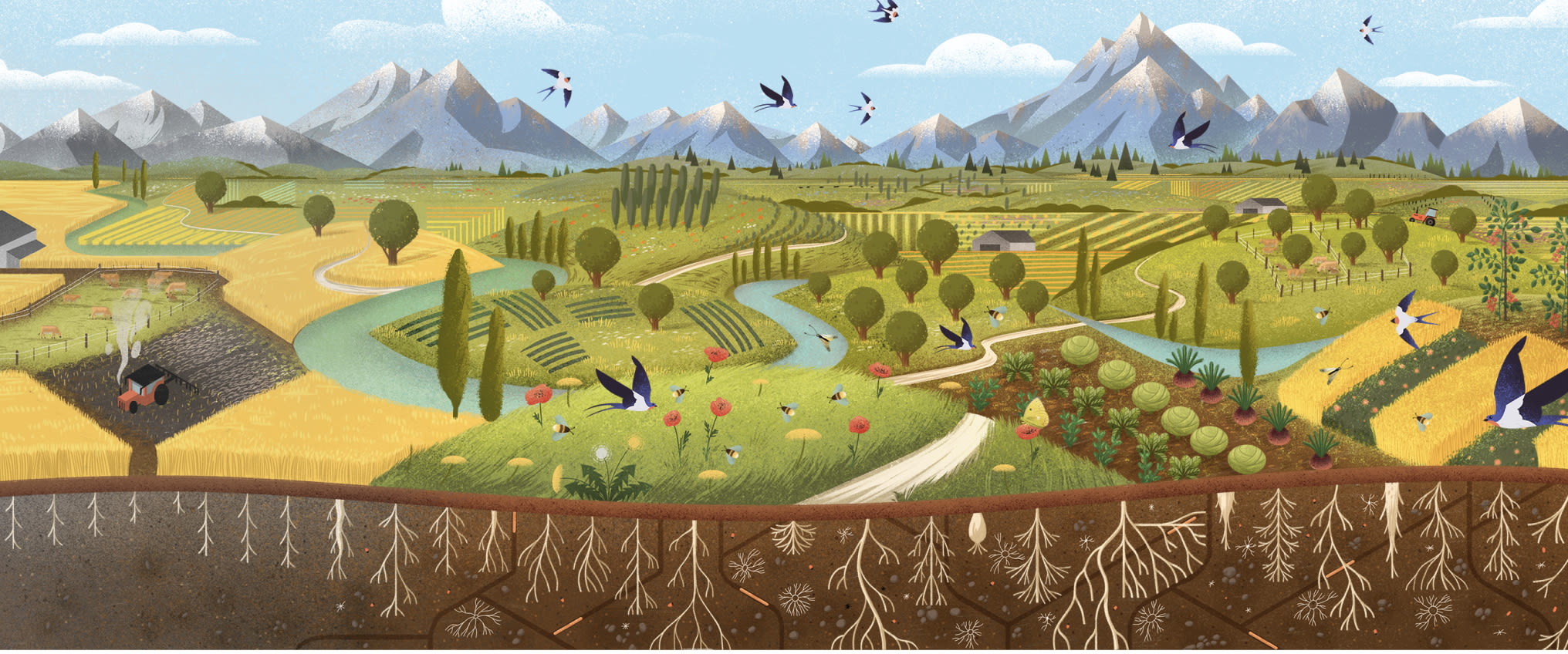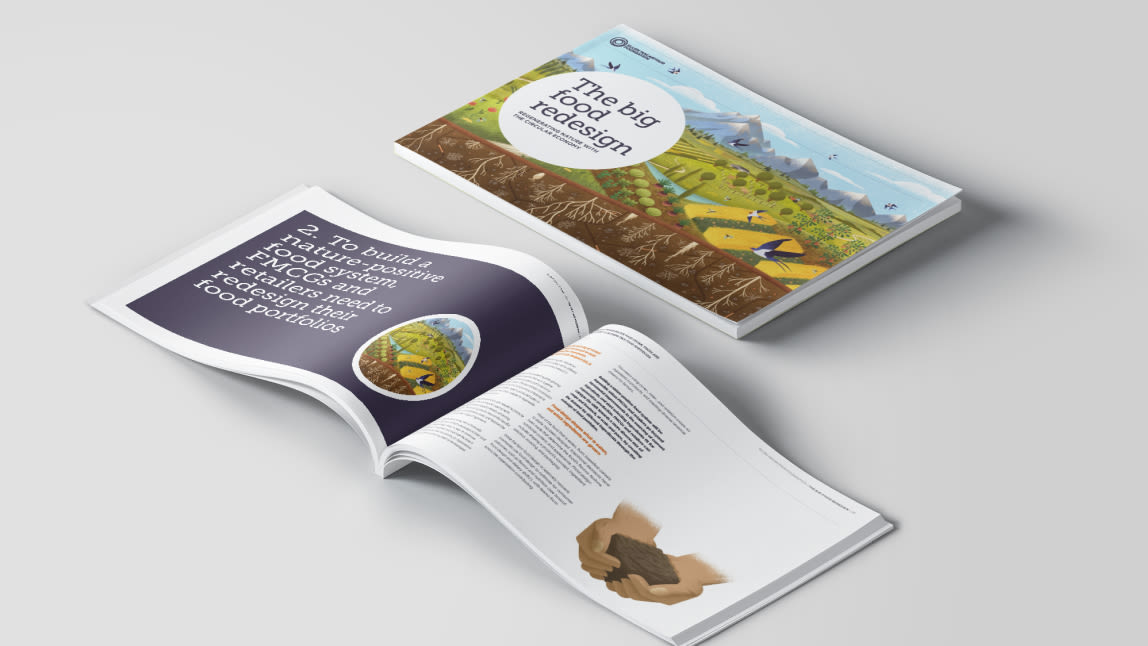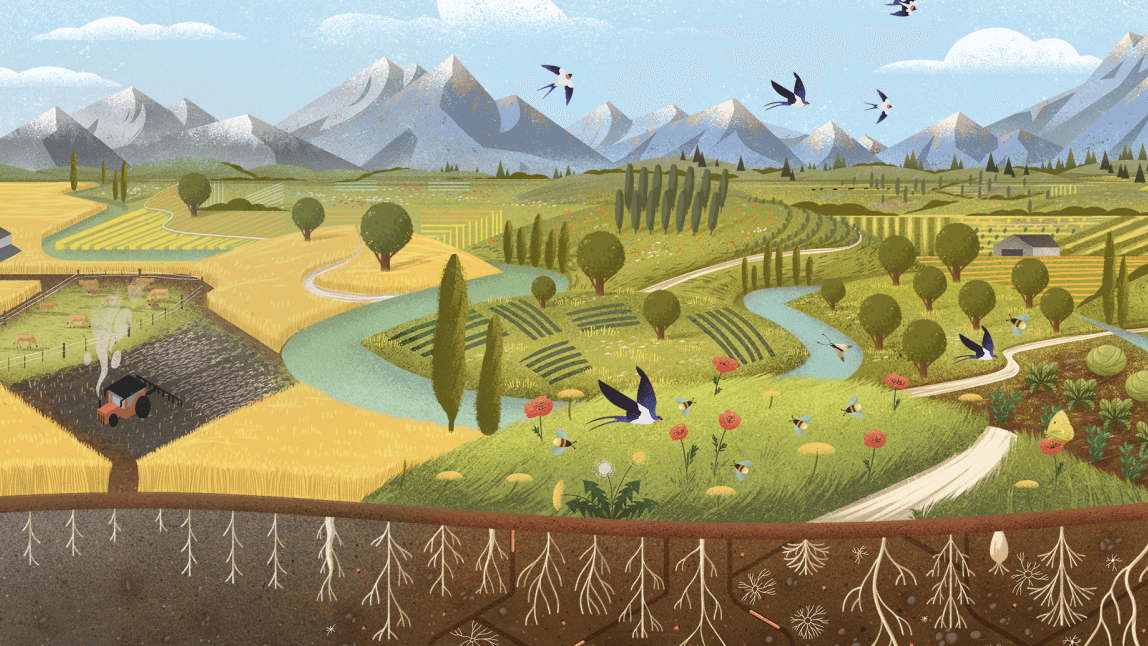Food brands and supermarkets have the power to make nature-positive food the norm. The Foundation’s latest study, The big food redesign: Regenerating nature with the circular economy, explains how.
Everything you eat is designed, from your favourite takeaway to the type of vegetables you buy in the supermarket. Companies make choices about what we eat, how it looks and tastes, and how good it is for us and nature.
Across Europe and the UK, the top 10 fast-moving consumer goods companies (FMCGs) and retailers influence about 40% of agricultural land. The big food redesign explores how by rethinking the ingredients they use and how they're produced, they can provide choices that are better for customers, better for farmers, and better for the climate – whilst halting 70% of biodiversity loss associated with the food sector (compared to business as usual).
Circular design for food demonstrates opportunities for companies to go beyond better sourcing (sourcing the same ingredients through regenerative practices) to fundamentally redesign their product portfolios. Our study explores a combination of four design opportunities where companies can take action:
Diverse ingredients – Using a greater diversity of animal and plant varieties and species as ingredients
Lower impact ingredients – Simple swaps that have reduced environmental impacts, even when conventionally produced
Upcycled ingredients – Transforming inedible food byproducts into new ingredients
Regeneratively produced ingredients – Producing food in ways that have positive outcomes for nature. These methods can also be applied to the way diverse, lower-impact and upcycled ingredients are grown.
Currently, the food industry is responsible for one-third of global greenhouse gas emissions and more than 50% of human-induced pressure on biodiversity; but instead of bending nature to produce food, food can be designed for nature to thrive.
The transition towards circular design for food has started. For example, Guima Café produces coffee in Brazil and is collaborating with Nespresso and ReNature to transition to regenerative productionregenerative productionRegenerative production provides food and materials in ways that support positive outcomes for nature, which include but are not limited to: healthy and stable soils, improved local biodiversity, improved air and water quality.. Danone has established long-term contracts with dairy farmers, helping alleviate short-term market volatility, thereby allowing them to adopt practices that can support regenerative outcomes. And WWF and Knorr launched their 50 future foods cookbook.






